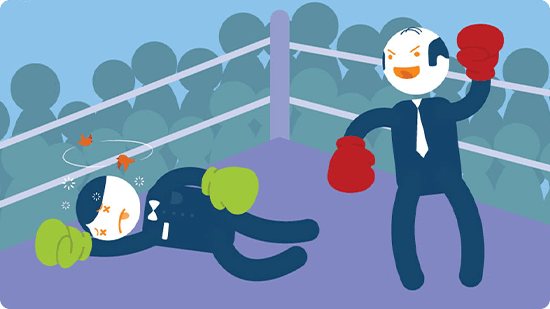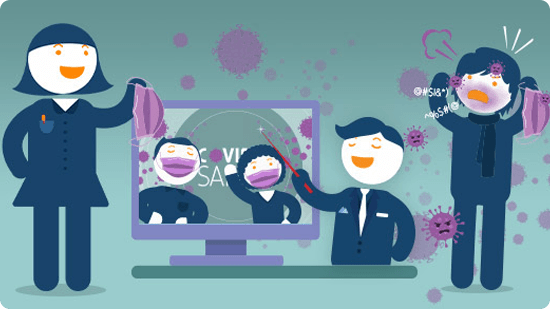Good customer service is… “We surveyed 100 people and the top eight answers are on the board… what is something a good customer service provider does?” It’s a question we could all imagine the host of Family Feud asking. Have a go yourself – I’ll wait right here for you. Cue game show thinking music. Did you say “smile”? I bet you did. And if you did, I bet you didn’t grow up in Soviet Russia.
American-style Customer Service in Russia
Alix Spiegel recounts a fascinating story in an episode of the podcast Invisibilia (which I thoroughly recommend listening to), about a Russian man, Yuri, and his struggle to open the first McDonalds in 1990s Russia. The main problem that Yuri encounters – even more impeding than post-Soviet Russia’s lack of food, mass amounts of red tape, and rejection of American culture – is the chasm of misunderstanding between the way Russia understood customer service and the way America did.
“McDonalds,” as put by David Chidester in the book Religion and Global Culture (2004), “sells a smile with its products”. This can be problematic for someone who grew up in the serious environment of communist Russia where smiling at strangers was a sign of idiocy.
In fact, Spiegel’s venture into the psyche of Russian customer service uncovers an even greater cultural divide. Imagine for example, a situation where food is so scarce that instead of restaurateurs trying to lure you in to be wined and dined, you have to actually beg the waiters to give you food – food you pay for! When the power is with the service provider – customer service sort of goes out the window.
Cultural differences in customer service
Different cultures require vastly different approaches to customer service. Professor Chris Rowley and Dr Wes Harry document a variety of differences in businesses across cultures. Take, for example, the very direct business interaction that is the norm in America, whilst in Malaysia, where communication is more indirect, being direct is considered rude.
This concept is echoed in an interesting article from the American business consulting company, EthnoConnect. There are simple cultural differences that can cause huge, unintentional misunderstandings. As normal and conventional as shaking hands is to us, an older, traditional woman from India, Japan or the Middle-East may find touching a man (other than her husband) uncomfortable and shaming or worse.
“People don’t buy things for logical reasons, they buy for emotional reasons.” – Zig Ziglar
The secret to customer service
A statistic shared by the Provide Support Blog shows that 78% of customers consider the customer service representative responsible for their customer experience. If this seems obvious, stop and consider that only 22% of people categorise their service experience based on the actual service received, as opposed to the person providing said service.
The way you engage with your customers must reflect the way they engage with you. Mirror their verbal and non-verbal language so that they feel like you’ve established a connection with them and understand them.
Without successfully interacting with a customer on their level your customer service will be as futile as trying to sell a Big Mac with a side of smiles to a Soviet Russian.
How can you improve your staff’s customer service skills?
Customer service skills do not simply materialise on the job. Without guided training, expecting an employee to know how to provide quality customer service is like handing out driving licenses to everyone automatically at their Sweet 16!
Having said that – customer service training need not be expensive, time consuming or, good heavens, boring! Take Canity for example.
Canity is an online training platform designed for customer service representatives. With everything from the nitty gritty phone skills to the highly conceptual tactics for dealing with difficult customers, Canity has uncovered the secret to customer service and packaged it in enjoyable, animated training videos.
It’s time to get your staff trained and prepared for any customer service situation with consistent Canity training. Sign up for Canity today!












